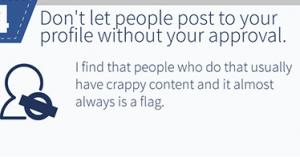Navigating soft skills in the age of AI: The key to successful hiring, engagement, and retention
The integration of AI in talent acquisition, paired with a steadfast focus on soft skills, presents a balanced approach to hiring and developing talent.
The Fast Company Executive Board is a private, fee-based network of influential leaders, experts, executives, and entrepreneurs who share their insights with our audience.
BY Din Chaney
In the landscape of modern hiring practices, two critical trends are shaping the future of how organizations identify, engage, and retain talent: the undeniable importance of soft skills and the rising use of artificial intelligence (AI) in talent acquisition.
As we navigate this new terrain, the challenge lies not just in leveraging technology to streamline hiring processes, but in ensuring that the human elements of creativity, communication, adaptability, and emotional intelligence remain at the forefront of our talent strategies.
THE RISING DEMAND FOR SOFT SKILLS
Recent studies underscore the growing emphasis on soft skills in the workplace. With 92% of employers considering soft skills “essential” or “very important” in hiring decisions, it’s clear that these intangible qualities are invaluable in today’s job market. From communication and teamwork to critical thinking and adaptability, soft skills are the backbone of effective collaboration and innovation within organizations.
SOFT SKILLS AND ORGANIZATIONAL SUCCESS
The advent of AI in talent acquisition offers opportunities for efficiency and precision in identifying qualified candidates. However, the essence of what makes a candidate truly fit for a role often lies beyond the realms of algorithms and data analytics. It’s within the nuances of human interaction, problem-solving, and team dynamics—areas where soft skills play a pivotal role.
INTEGRATING AI WITH A HUMAN TOUCH IN TALENT ACQUISITION
1. Enhance Your Screening With AI
AI tools can screen for technical skills and qualifications, but integrating soft skills assessments into the hiring process ensures an holistic view of each candidate. By leveraging AI for initial screenings and incorporating methods to evaluate soft skills, organizations can balance efficiency with depth in their talent search.
2. Drive Behavioral Assessments With AI
Utilizing AI to analyze candidates’ responses in video interviews or written assessments can offer insights into their soft skills. Technologies like natural language processing (NLP) and machine learning (ML) provide a nuanced analysis of language and speech patterns, and offer clues about a candidate’s emotional intelligence, adaptability, and collaborative abilities.
3. Continuously Learn And Adapt
AI systems learn from each hiring cycle, continuously improving their capability to screen for soft skills. By feeding outcomes and performance data back into the AI system, organizations can refine their understanding of the soft skills most predictive of success in their unique environments.

5. Balance AI Insights With Human Judgment
While AI provides valuable data, the final hiring decisions should involve human judgment—especially when it comes to assessing soft skills. This ensures that candidates are not only technically qualified, but also a good cultural and team add.
THE PATH FORWARD: DEVELOPING SOFT SKILLS IN THE AI ERA
As we embrace AI in talent acquisition, the development of soft skills remains a critical focus for engaging and retaining talent. Through targeted training and development programs, organizations can nurture these skills and enhance employee engagement to foster a positive workplace culture. AI also plays a role in this developmental journey by offering personalized learning paths for soft skill enhancement and providing analytics to guide continuous improvement.
CONCLUSION: NAVIGATING THE FUTURE WITH AI AND SOFT SKILLS
The integration of AI in talent acquisition, paired with a steadfast focus on soft skills, presents a balanced approach to hiring and developing talent. As we move forward, the organizations that will thrive are those that leverage technology to augment their processes while recognizing the irreplaceable value of human creativity, empathy, and collaboration.
In mastering soft skills in the age of AI, we find the key to unlocking the full potential of our workforce to drive innovation and ensure long-term success.
Din Chaney is the VP of Talent-as-a-Service of HireBetter, helping companies scale through strategic talent services.
(12)
Report Post






